Dominican Republic Coffee / Café Republica Dominicana
Dominican Coffee is a wonderfully rich-flavored and dark roasted coffee. Café Dominicana is the pride and joy of the Dominican people.
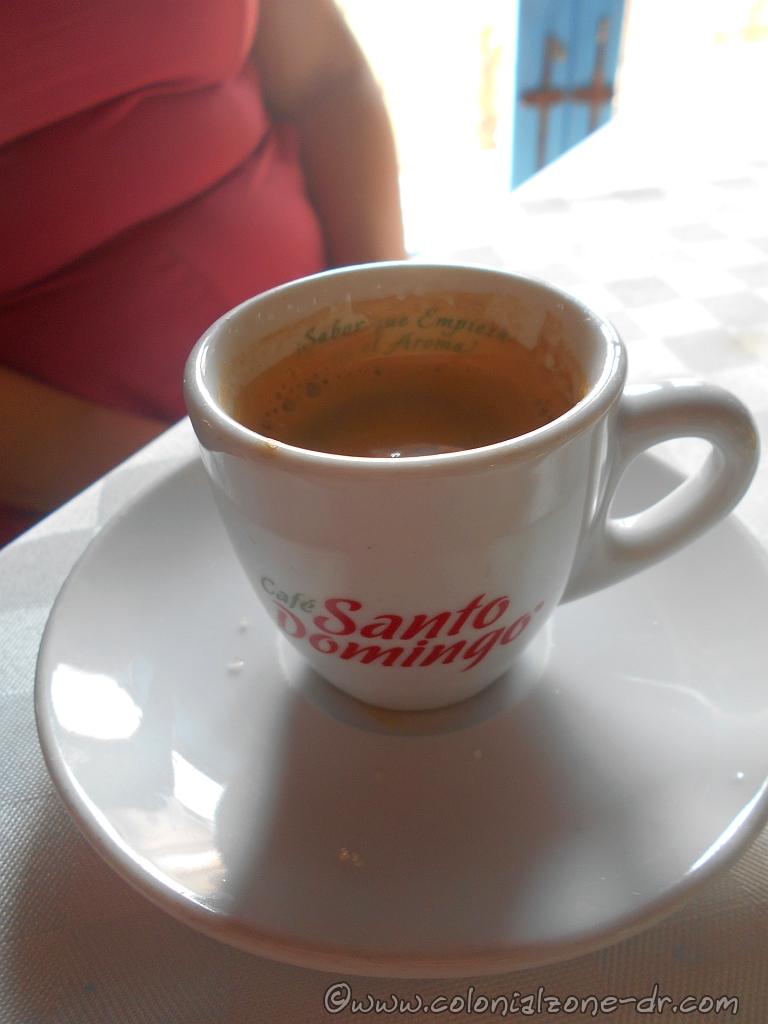
Dominicans love their coffee. Most Dominicans will have their coffee black/ negro in a small cup with lots of sugar/ azucar. Some like to add some powdered cream to their cup. Try coffee with milk/café con leche. Coffee with lots of boiled milk/ medio pollo or American Coffee/ Café Americana this is espresso coffee served with hot water to thin it out.
Growing Coffee | Café Santo Domingo | Bialetti Coffee Maker or the Long Coffee Maker | Coffee Making Tips |
Dominican Republic coffees are usually very rich and robust. They have a small amount of acidity. The coffee production is mainly in the towns of Cibao, Bani, Ocoa, and Barahona in the Cordillera Septentrional, the Cordillera Central, the Sierra de Bahoruco and the Sierra de Neyba regions.
Buy Dominican Republic coffee from Amazon. Organic and non-organic, whole bean or ground, Dominican Republic coffee is the best!
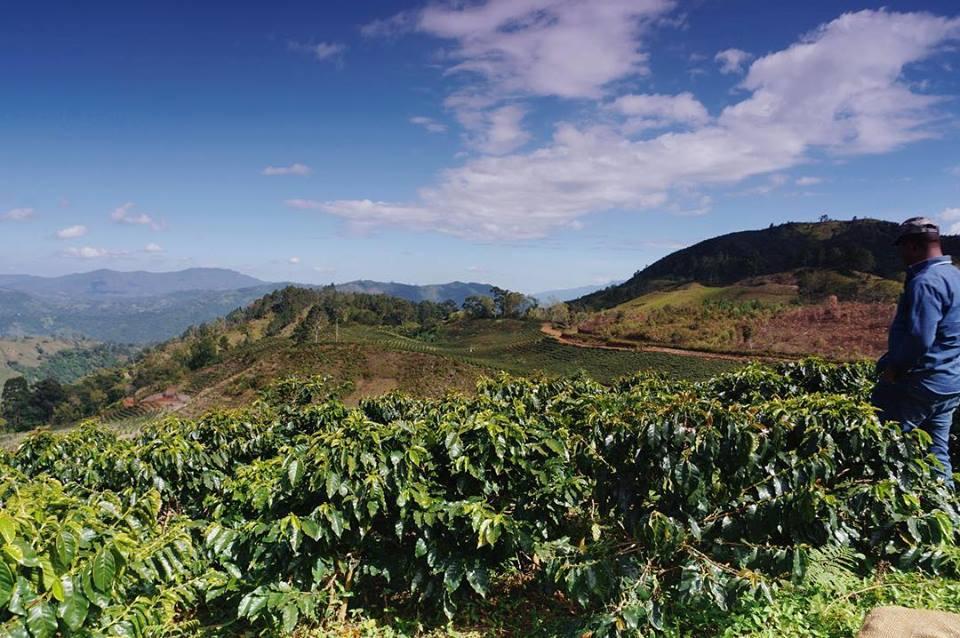
Growing Coffee
The coffee grown in this Caribbean region is a darker type of coffee that has a soft, sweet flavor. This dark Arabica coffee is unique, as it does not have the bitter taste that many dark roast coffees seem to have. The coffee from Dominican Republic ranks high in full-flavored coffee the price is very reasonable.
The Dominican coffee growers have been working very hard trying to make their coffee products known worldwide. Coffee has been growing on the island of Hispaniola for more than 265 years. Even with all these years growing coffee it is generally lover looked by coffee connoisseurs. The country is now recognized as top producers of organic coffee.
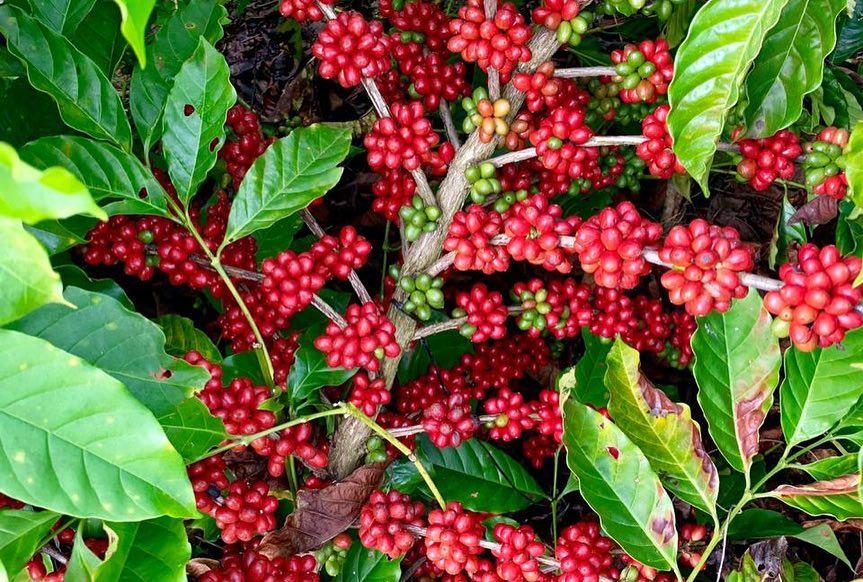
The coffee plant, belonging to the Rubiacede family, is a woody perennial evergreen with a main trunk with branches growing off of branches. The plant can grow tall but it is usually pruned down to make harvesting easier. It takes about 4 years for a plant to start producing. First comes the sweet-scented flowers, and then the little beans start growing, quite fast, where the flower once was. It will take about 35 weeks for the flower to turn into a green bean then red. When the coffee “cherry” is ripe it is bright red, firm and is shiny.
Our coffee is grown mostly in full shaded areas with maybe 10% of the coffee grown in the sun. Because of these variations, the country can grow coffee year-round. The lower altitude coffee is harvested in August to September with the higher regions harvesting through May or June.
Another great thing about the coffee grown here is that the shade required for growing is provided by larger trees. This is very good for the environment because the shade trees provide habitats for many species of birds, lizards and even orchid plants. About 90% of the coffee produced here is organic and environmentally friendly because most growers do not use chemical pesticides or fertilizers in the growing process.
Coffee in Dominican Republic is usually grown by small farms with entire families including the women and children all working together. There are some commercial farmers here but most of the growers either work alone or belong to a coop. These local farmers grow their coffee on hills and steep mountain slopes. It is usually picked by hand with each farm producer usually processing the coffee themselves in what is called a wet mill / beneficios humedos. This way only the ripe beans are picked saving the unripe to be picked when they are ready. They are sorted to get the good beans out of the bunch. The good beans float in water the bad stuff sinks. Then they are separated again according to the density of the bean, this is how the bean is graded. The better the coffee the denser the bean.

The beans are then fermented. This may take a day or so, depending on the bean type. Then they are dried, first in the sun then in a drying machine until they have just the right moisture ratio. The drying can take anywhere from 6 to 14 days. About 12-20 kg of export ready coffee will be produced from every 100 kg of coffee cherries harvested.
Buy Dominican Republic coffee from Amazon. Organic and non-organic, whole bean or ground, Dominican Republic coffee is the best!
There is much more to the coffee growing and production process that is too much for most to concern themselves with. Yet most people never realize where their prized morning cup of coffee comes from and how much it takes to get that aromatic black liquid into your hands. So when you do have that first aromatic wake-up cup of java in the morning just think how much was involved to give you that morning or after dinner pleasure.

In the street you can buy coffee from vendors carrying little plastic, thimble-sized cups with sugar usually already added. If you do not like sugar in your coffee then you will be shocked with your first taste. Give it a try. It does taste wonderful and will give you back the bounce in your walk you lost while strolling in the hot Caribbean sun.

Café Santo Domingo
If you’ve had Cafe Santo Domingo (Amazon link) or some of the other brands of Dominican Coffee you’ll know why it is so highly recommended. Can’t have your coffee in Zona Colonial, don’t worry. Order some online. Thank you in advance for helping our hard working Dominican farmers.
While you are drinking our rich coffee. Close your eyes. Inhale the wonderful aroma. Envision the bright Caribbean sun while you’re under a fan in a little cafe enjoying the best coffee in all the world. Remember, you can have your coffee and drink it too!
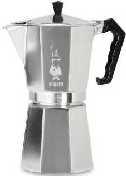
Bialetti Moca Express
In my opinion, the BIALETTI coffee maker (Amazon link) (pictured here) is one of the best for making your Dominican Coffee. With its patented octagonal shape it makes this maker easy to spot. They produce over 16,000 coffee makers per day. Since I’ve been making coffee with mine (bought for me by my son for a Mother’s Day present when he was 7 years old, about 25 years ago. Recommended to him by his favorite lady in a little Italian coffee shop. He loved espresso coffee and really bought it for himself) drinking coffee made using any other method just doesn’t taste the same unless it is the traditional coffee made on a fogon.
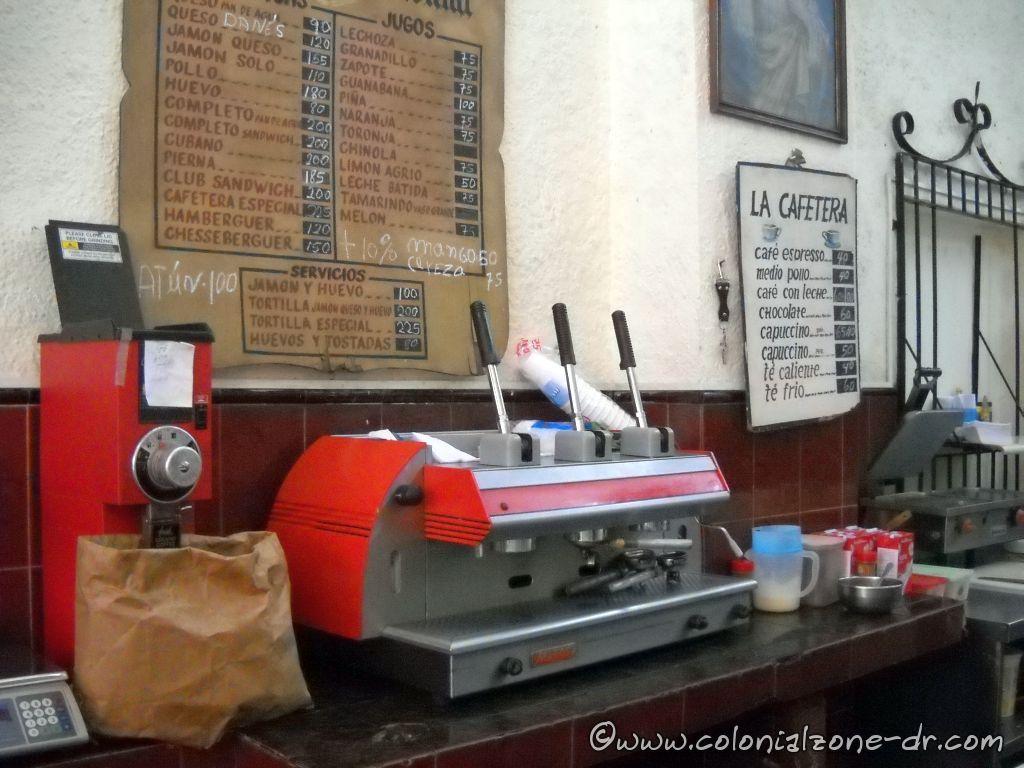
COFFEE MAKING TIPS
an article written by © Michael Spencer 2003
It is very hard not to get a good cup of Dominican Coffee. Here are some tips to help you make a good cup great. At the end, I will tell you how to get the Perfect Cup.
Two things are critical:
1. Fresh roasted and freshly ground coffee.
2. Hot brewing water.
Fresh roasted coffee:
The freshest and best beans come directly from the roaster. But excellent roasted beans produced by any of the Country’s torre factories can be bought in any large and busy supermarket as they restock regularly. Beware of a bag of beans that has been sitting on a shelf in a Colmado or at an airport gift stand for who knows how long.
If you buy enough beans for a week, keeping them in an airtight container on the counter will be adequate storage. Any longer, and you should keep the airtight container in the freezer.
Without question, the beans should be ground just before brewing. Ground beans stale very rapidly because of the increased surface area exposed to oxygen, which is deadly.
Bagged or vacuum canned ground beans are convenient, but many of the subtleness and nuances of taste and flavor are lost in the process. Plus, once open, here comes oxygen to attack what is left. The last pot will be nowhere near the quality of the first.
Hot Brewing Water:
Over the centuries experience and experiment has taught that the best liberation of aroma and extraction of flavor is accomplished if the water is just off-boiling as it reaches the ground beans. (92º-96º C).
That is why the “long espresso” brewer used by everyone in the Dominican Republic makes such good coffee. Boiling water is forced up the inner tube by pressurized steam. When the water hits the ground coffee, the temperature is perfect.
Conventional drip brewers (Mr. Coffee, etc.) are also adequate, as most newer ones will make the water hot enough. A washable gold or nylon mesh filter, while less convenient, will produce a much better brew because the paper filters capture some of the tasty molecules and flattens the coffee. In either case, you will want to adjust the amount of ground coffee you use to suit your taste. Be generous.
Finally, do not brew more coffee than you are going to drink right then and there. Brewed coffee left to cool or even left warming on a hot plate loses body and flavor very rapidly. You will just be wasting the quality you paid for and worked to achieve.
Now, here is how to get the Perfect Cup:
You will be riding on a dirt trail up in the hills, heading for home, when from a neighbor’s house will issue the invitation, “desmontense.”
As all the family chairs are being set up in the shade, you will observe that one of the children is crushing roasted beans in the pilon, and a pot of water has been set to boil over a wood fire in the clay fogon. The beans will have been roasted earlier over that same fire, and will be from what your neighbor reserved from his crop before it was sold.
Buy Dominican Republic coffee from Amazon. Organic and non-organic, whole bean or ground, Dominican Republic coffee is the best!When the water reaches a rolling boil, the pot will be removed from the fire and a generous amount of crushed coffee and raw brown sugar added, together with, perhaps, a dash of powdered clove, cinnamon, vanilla, or cacao.
After settling for a few minutes, the dark brew will be strained through cloth, and served to you in the family’s best.
You will tilt back in the shade, sipping the brew, discussing the vagaries of the weather, the price of crops, and the nuisance of roaming pigs.
You will be drinking the Perfect Cup.
